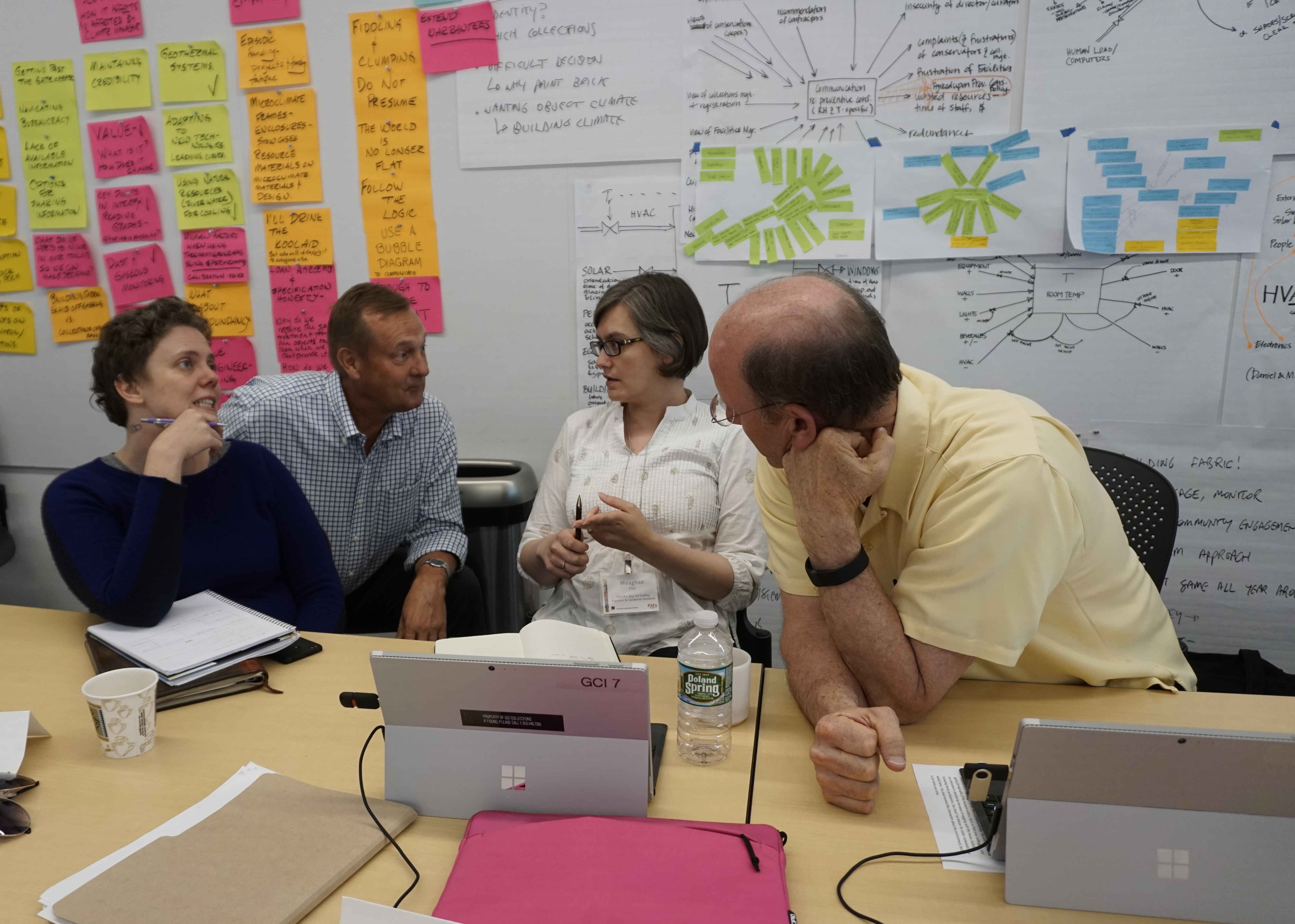A Three-Phase Course
Online material, Beginning in July 2019 (ten weeks) |
Intensive workshop, September 30—October 11, 2019 |
Distance mentoring, Beginning November 2019 (six months) |

Managing collection environments while providing long-term access to cultural materials requires a complex set of technical, analytical, and social skills. The preservation of collections has evolved into a discipline that has acknowledged the complexities and uncertainties that are present at all stages of environmental management. Recent and on-going debate about appropriate climates has eroded the certainty of prescriptive approaches to reveal that no single field of study holds the solution and no one solution can be applied universally.
This innovative course brings together different disciplines, emerging knowledge, and the skills required to communicate and build consensus on the most appropriate approaches for climate control. It will provide up-to-date information that puts theory into practice and connects with participants' own working contexts by drawing on their experiences and by fostering continued learning through distance mentoring.
Aim
The course aims to disseminate recent research and thinking on technical aspects of environmental management while enhancing participants' critical thinking and analysis to different kinds of information, and enhance their decision-making and influence within institutional frameworks.
Objectives
Update and refresh technical knowledge in order to analyze and communicate collection risks
Discuss the management of collection climates from the perspectives of architects, conservators, curators, facilities managers, scientists, and institutional administrators
Blend the experience and knowledge of experts with your own institution's situation
View problems and solutions within institutional contexts, while exploring decision-making that balances all issues and stakeholders and builds towards institutional consensus
Help develop holistic, sustainable solutions that are based on the needs and capacities of your institution
Develop a network of professionals dedicated to sustainable preservation of historic material
Topics
The course will cover a range of topics from analysis of the situation to implementation of decisions. Topics include, but are not limited to: climates and building envelopes, material response to climate, causes and concepts of "damage", monitoring and data analysis, risk-based approaches, sustainable options for control and management practices, long-term strategies, program briefing, strategies for communication, and leadership.
Learning Strategy
To support informative classroom discussion and embed learning in practice, the course will commence online with tasks, readings and discussion. All participants will be required to complete a number of assignments during this initial phase of the course; some assignments will require information-gathering and consultation with other institutional colleagues.
Participants may require 2-3 hours per week to complete work assigned during this initial 10-week phase. The second phase will be an intensive two-week interdisciplinary on-site workshop that will take place at the National Gallery of Victoria, Melbourne, Australia. The third and final phase of the course will be a six-month distance mentoring program, individual to each participant.
A commitment to participate actively in all three phases of the course is required. The working language of the course is English.
Benefits to participants
Provides you with up-to-date knowledge on technical advances, practical implementation, and decision-making skills for collection preservation
Blends learning with your own experience through the use of case-based learning, include exercises that can relate directly to your institution, and in-practice mentoring
Helps develop your personal skills to communicate, justify ideas, and to understand and respond collaboratively to other perspectives and needs
Provides insight into perspectives and activities of other disciplines connected to collection preservation
Enhances your ability to manage and facilitate change
Develops new contacts and strengthens your existing contacts within and beyond your institution
Benefits to participants' institutions
Foster cooperation, communication, and understanding within the institution
Improve personal and professional abilities to achieve institution's mission and manage change
Contribute to organizational commitments to sustainable environmental practice
Strengthen internal and external networks
Help develop current staff for future roles
Instructors
Chris Arkins, Steensen Varming
Vincent Beltran, Getty Conservation Institute
Michelle Berry, Michelle Berry Heritage Preservation
Alice Cannon, Museums Victoria
Michael C. Henry, Watson & Henry Associates
Usha Iyer-Raniga, Royal Melbourne Institute of Technology
Richard Mackay, Mackay Strategic
Ian Neal, Management Abroad
Richard Silink, National Trust (NSW)
Joel Taylor, Getty Conservation Institute
Nicole Tse, University of Melbourne
Sharon Veale, GML Heritage
Page updated: April 2019